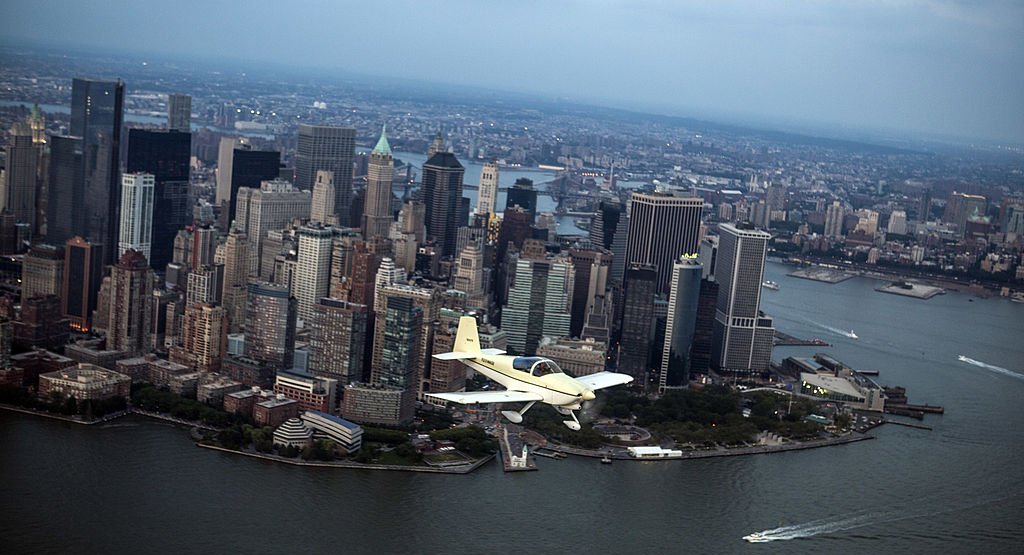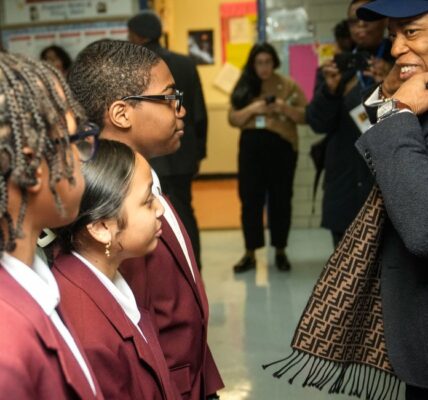If you’re in the market for a private plane, a 10-seat 2020 Cessna Grand Caravan EX will set you back about $3.4 million. But if you’re in New York, don’t worry about the sales tax: Private jets are tax exempt, thanks to a 2015 state law that’s currently dividing some Democrats in Albany.
State Senate Democrats didn’t control the chamber when then-Gov. Andrew Cuomo and the Legislature approved the controversial exemption nine years ago. They’re now leading a push to repeal the tax break and a similar — albeit slightly less generous — exemption for luxury yachts.
Their efforts are encountering considerable opposition from the private jet industry and New York’s airports, particularly smaller ones in the Hudson Valley, upstate and on Long Island that partially rely on revenue from storing private planes in hangars.
The tax breaks are now among hundreds of issues tied up in state budget negotiations between Gov. Kathy Hochul and legislative leaders, who are all Democrats. The elected officials already blew past the state’s April 1 budget deadline and continue to struggle to reach consensus on a broader spending plan.
“Both of these tax credits seem way out of alignment with what we should be doing to provide support for working- and middle-class New Yorkers, not the Thurston Howell IIIs of the world who can afford these types of taxes for their luxury playthings,” said Democratic state Sen. Brad Hoylman-Sigal, who represents parts of Manhattan, referencing the boastful millionaire on the 1960s TV show “Gilligan’s Island.”
The plane and yacht tax breaks were slipped into the state budget in 2015, just before lawmakers approved it. At the time, Cuomo and a faction of state lawmakers — including Senate Republicans and some key Assembly Democrats — sold the tax breaks as a way to encourage people to buy private aircrafts and boats in New York rather than in other states. In turn, the proponents argued, this would provide a boost to the state’s marinas and airports.
The tax exemption applies to the entire purchase price of private jets that aren’t used for commercial purposes, as well as fixtures to the aircraft, such as furniture. It doesn’t apply to things like decor on the plane, nor does it apply to drones.
Buyers of yachts and other boats must still pay sales tax on the first $230,000 of the sale price, meaning the maximum amount of sales tax someone would pay in a county with an 8% total tax rate would be $18,400 — even if the price tag would normally demand more.
Assemblymember Donna Lupardo, a Binghamton-area Democrat who co-chairs the Legislature’s aviation caucus, said the plane tax exemption was about putting New York on par with nearby states. She sponsored a version of the tax break before it passed in the budget.
“When I found out that every state surrounding us, eight states, had already eliminated the sales tax on general aviation planes, we got rolling on this and finally got it put in the budget of 2015,” she said on Tuesday.
But the pushback was swift.
The last-minute addition angered progressives and reform-minded groups, who branded it the “yacht tax break” and said it amounts to an unseemly giveaway to wealthy people. A wave of headlines followed, but the tax breaks continued to stand.
Democrats later took control of the state Senate and Hochul succeeded Cuomo as governor. In recent years, Hoylman-Sigal and Assemblymember Robert Carroll of Brooklyn have sponsored bills to repeal both tax exemptions, which Senate Democrats included in their own state budget proposal last month.
“We ask people to pay sales tax when they buy a car, we ask people to pay sales tax when they buy a fishing boat,” Carroll said. “But for some reason, if you buy a private jet or a boat that’s over $230,000, we no longer request that you pay sales tax. It just seems like an unnecessary giveaway for a niche luxury item.”
In a memo supporting the repeal bills, government reform group Reinvent Albany called the aircraft exemption “one of the most odious tax breaks” in state history.
The Senate’s decision to include the repeal in its budget proposal sent airports and marinas scrambling.
The New York Aviation Management Association, which represents the state’s airports, joined the state Association of Counties and trade groups representing the private aviation industry to send Hochul a letter urging her to support keeping the tax break, which they said was an “unqualified success.”
In a separate memo to lawmakers, the Aviation Management Association pointed to a number of airports across the state that have boosted their hangar capacity or are in the process of doing so, including MacArthur Airport on Long Island and Stewart International Airport near Newburgh.
Bruce Geiger, a lobbyist for the association, cited state tax department data estimating the aircraft exemption will result in $18 million in foregone tax revenue this year. That’s a relatively small amount compared to the size of the state budget, which is expected to exceed $233 billion.
“It’s really not that valuable to the state to reinstate it,” Geiger said. “For $18 million to the state budget, compare that to what we would consider a catastrophic impact on the aviation industry in New York and how other businesses look at the state of New York as to whether it’s the right place to do business.”
Jeff Strong, president of Strong’s Marine on Long Island, made a similar case for the yacht tax break. Before the 2015 law took effect, Strong said, people looking to buy luxury boats would often choose to establish residence in Florida and buy boats there, even if they ended up bringing them to New York. Currently, New York’s tax on yachts is similar to neighboring states and Florida.
“It put us on a level playing field with other states,” said Strong, whose business sells boats and rents space to store them. “If the customer wants to purchase from Strong’s, now there’s not a financial disincentive, so they’re going to purchase from us.”
The tax department estimates the yacht tax break will cost $1 million in forgone revenue this year, but, as with private planes, it’s possible buyers could structure their purchase ways to avoid the tax even if the exemption wasn’t in place.
Hoylman-Sigal said the tax break’s cost wasn’t the point. “You could argue that there’s a lot of symbolism here,” he said. “I think it sends a message more than anything that, when the state is tightening its belt, these are the types of tax exemptions that should be closely scrutinized.”
So far, Hochul hasn’t taken a position on whether to repeal the tax breaks or leave them in place. Her spokesperson Avi Small didn’t address them directly in a statement, but said Hochul is focused on “making record-setting investments in New York’s future while ensuring the state remains on a stable long-term fiscal trajectory.”
Meanwhile, the Democrat-dominated state Assembly hasn’t signaled whether it’s open to repealing the tax breaks. Speaker Carl Heastie, a Bronx Democrat, spoke favorably about the measure when lawmakers passed it in 2015.
Lupardo said she’s confident the Assembly will decide to leave the exemption alone. When asked whether there’s any chance the Assembly will decide to repeal it, she held her hand up in the shape of a zero.
“I think it’s highly unlikely that we will turn back on this in the state Assembly,” Lupardo said. “I understand how people view it if they don’t know the whole story, but it really is a very successful endeavor that we’ve gone down.”





